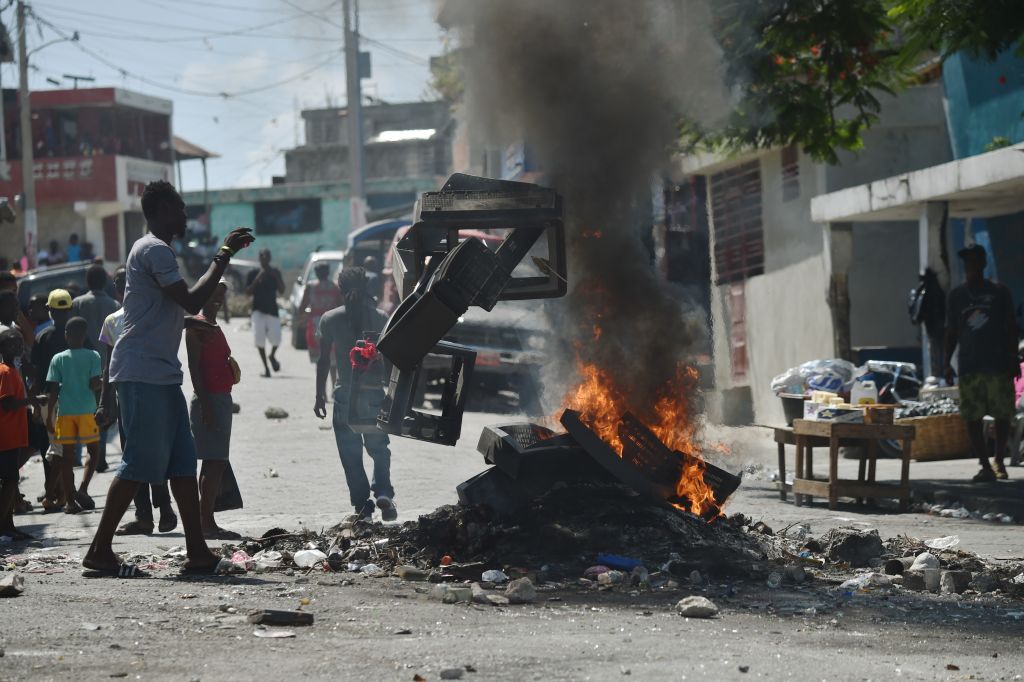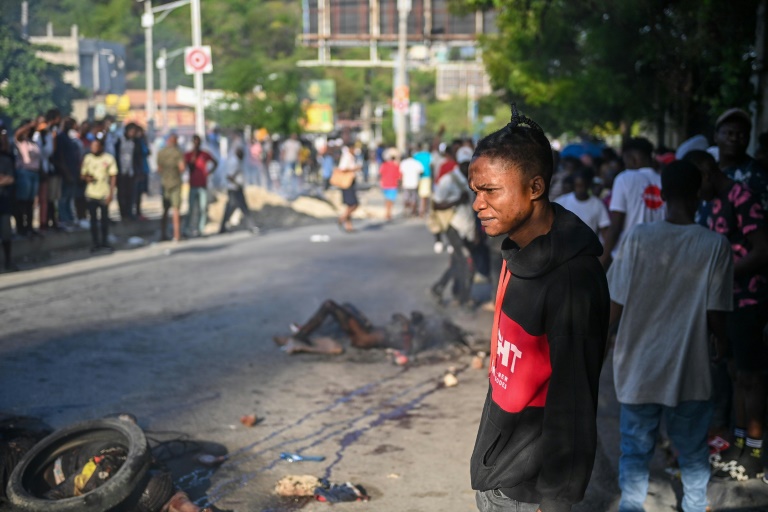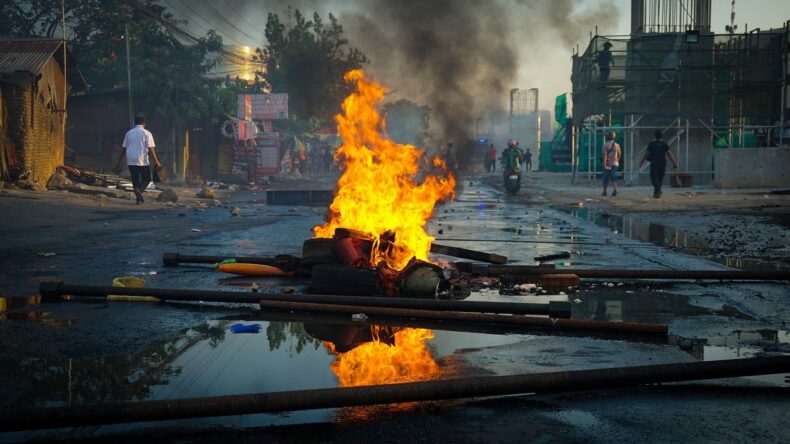13 Suspected gang members in Haiti were lynched and burned by residents in the capital, Port-au-Prince. The killing of more than a dozen members followed confrontations between gangs and security forces, and the country is currently facing its worst human rights crisis in decades. The United Nations has warned that the situation in the country has reached levels of insecurity comparable to those of countries in armed conflict.
Since the assassination of President Jovenel Moise in 2021, civilian discontent is at its highest, gangs have become stronger, and the capital and the countryside have become lawless. Approximately 80% of the Port-au-Prince metropolitan area is controlled by criminal groups, with around 200 gangs operating with impunity. UN Secretary-General Antonio Guterres has urged the immediate deployment of an international armed force to help Haitian authorities curb the violence and rights abuses, restore the rule of law, and create conditions for holding national elections.

The situation has worsened in recent months, with the number of homicides rising by 21% from the last quarter of 2022 to the first quarter of 2024, and the number of reported kidnappings increasing by 63%. The human rights situation in areas controlled by gangs remains appallingly poor, with killings, attacks, and sexual violence occurring regularly.
Table of Contents
The lynching and burning of suspected gang members
Haiti National Police stopped and searched a minibus for contraband early on Monday in the city’s Canape Vert section. They confiscated weapons from the suspects before they were “unfortunately lynched by members of the population.” Police did not provide details of how members of the crowd were able to take control of the suspects.
Witness Edner Samuel said that members of the public took the suspected gang members away from police, beat them, and stoned them before putting tires on them, pouring gasoline over them, and burning them. Photos and social media videos showed bodies stacked on the road, with blazing tyres and other debris on top of the deceased. Witnesses have reported that victims in recent violent incidents were believed to be members of the ‘Kraze Barye’ group who are also linked with the assassination of former president Moise.

UN’s Call for an International armed force in Haiti
The UN Secretary-General has reiterated that deploying an international force is “crucial” to help Haitian authorities curb the violence. Despite issuing an appeal last October at the request of Prime Minister Ariel Henry and the country’s Council of Ministers, neither the United States nor Canada showed any interest in leading such a force at a U.N. Security Council meeting in January. The international community has opted to impose sanctions and send military equipment and resources instead. Gangs have continued to compete for territory across the Port-au-Prince metropolitan area, infiltrating formerly undisturbed neighborhoods.

The human rights scenario in gang-controlled regions remains dismal, and conditions in newly targeted gang areas have deteriorated dramatically. The UN report highlighted the dire situation for residents of Cite Soleil, where snipers have fired from rooftops at pedestrians on the street. In a statement to global news sources, the UN humanitarian coordinator for Haiti stated that residents feel surrounded and are unable to leave their houses due to gang-imposed armed violence and intimidation.
The situation on the ground remains dire, with gangs using sexual violence and other forms of brutality to assert control over communities, causing widespread fear and suffering. Meanwhile, food insecurity has reached an all-time high, with 4.9 million Haitians suffering from serious and critical malnutrition. With the economy predicted to contract for the fifth year in a row, the people of Haiti are facing an uncertain future as their leaders struggle to find a way out of the political crisis.













